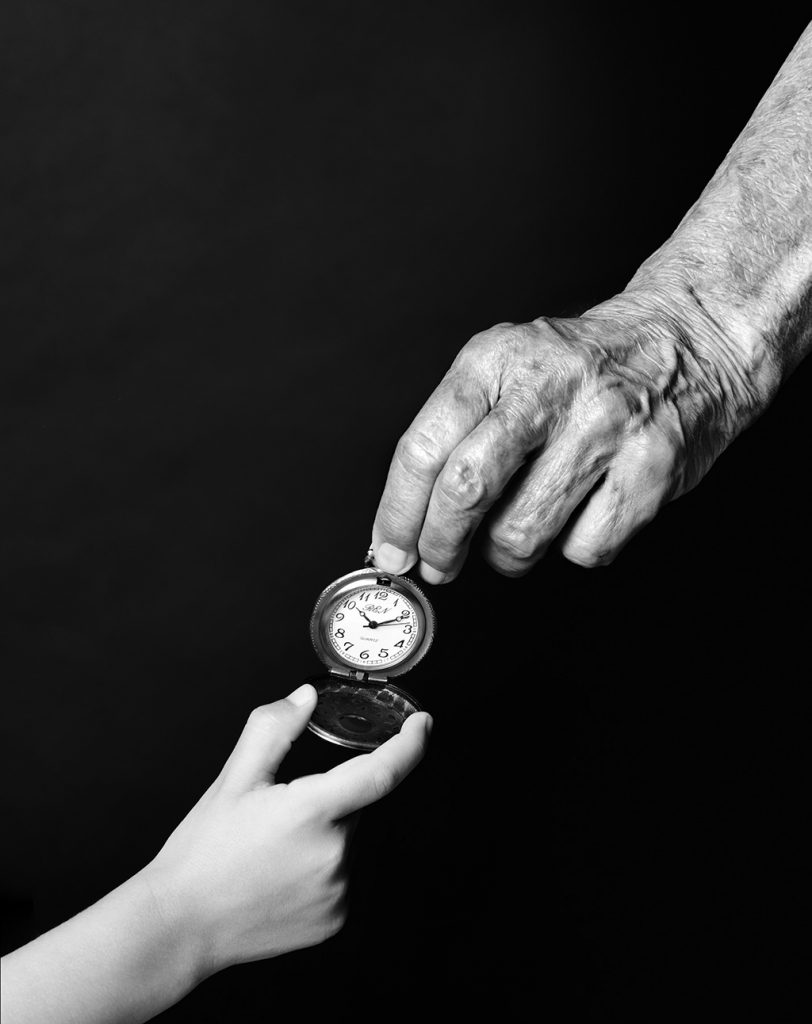It has been historically posited that we lose our circadian rhythms as we age, and that circadian arrhythmia is one of the underlying causes of ageing. We decided to study whether this was true, and what is the precise connection between circadian rhythms and tissue ageing. In these two papers, we therefore studied in an unprecedented depth how circadian rhythms are affected during aging of different adult stem cells (epidermis and muscle), and metabolic tissues, such as the liver. We show that aged stem cells and aged liver unexpectedly remain perfectly rhythmic, yet their circadian output (that is, all the functions whose timing is regulated by the clock) becomes reprogrammed to cope with age-related tissue-specific stresses. Importantly, in doing so, the clock stops imposing a correct timing of stem cell and tissue function, which further exacerbates aging. Importantly, we find that this reprogramming is significantly prevented by caloric restriction. We believe this is the first comprehensive analysis of how the clock behaves in aged stem cells and tissues. These studies importantly indicate that circadian reprogramming, rather than circadian arrhythmia, underlies the process of tissue ageing, and highlight the importance of how systemic metabolic cues derived from our diet impinge in tissue and organismal ageing.
References
